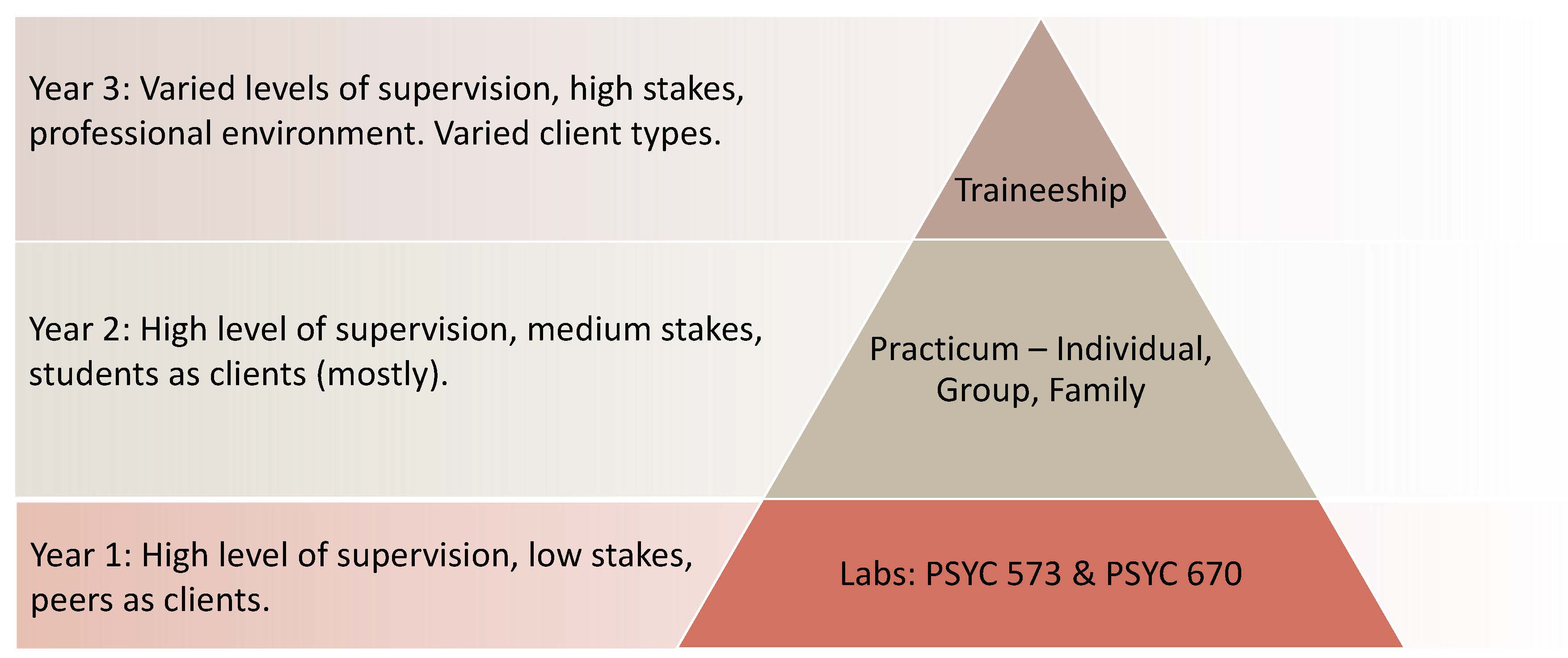CTC Accreditation Launchpad(opens in new window)
EPPU Preparation Providers Unit (EPPU) Webpage(opens in new window)
Interested in exploring other majors in the field of health and human services?
Interested in learning more about the MFT program?
Dr. Kyle Horst will be hosting an informational seminar about the program on Tuesday, April 9, 2024 from 4:00PM – 5:30PM on Zoom. Please email psy@csuchico.edu if you are interested in attending. This seminar will cover all of the basic information about the program including:
This three-year program provides an integrated course of study that meets the educational requirements for the Marriage and Family Therapist (MFT) license as specified in California State law (SB-33; Section 4980.36). The 60-unit program is designed to train exemplary professional therapists to work in public mental health agencies, private practice, and other similar settings. Skill acquisition is emphasized by a strong core of introductory laboratory courses and on-campus practica in our Counseling Training Clinic (CTC), culminating in an off-campus traineeship at a local agency. Theoretical background and training are provided in a variety of theoretical approaches, with emphasis on core “common-factors” that span all therapy practice. The program is designed to emphasize three overarching facets of clinical training: academic research, clinical practice, and personal growth. Self-care and personal growth are recognized as equally important processes to clinical learning as is academic ability. Program faculty aim to present themselves as models of ethical, professional, and passionate therapists.
The mission of the Marriage and Family Therapy Program at California State University, Chico is to train exemplary, passionate, research-informed, culturally-sensitive, client-centered, systemic therapists capable of excelling in a multitude of mental health settings through innovative and experiential learning.
Program Learning Objectives include:
The CSU Chico MFT program utilizes a “cohort model”. The cohort program model brings students together, with shared goals and skills to learn, develop skills, and collectively progress through the MFT program. This model allows students to learn from a planned sequence of coursework and effectively monitor personal growth and development.
The MFT program adheres to a full-time, three (3) year program of study. Upon entering the MFT program, all students agree to adhere to the MFT Program of Study (See Below). The program organizes the curriculum to ensure that fundamental courses address foundational knowledge, and subsequent coursework is dependent on the prerequisite semester's experience.
| Semester 1 | Semester 2 | Semester 3 | Semester 4 | Semester 5 | Semester 6 |
|---|---|---|---|---|---|
| 573 | 670 | 673B | 673C | 687* | 687* |
| 600 | 673A | 641 | 665 | 678 | 696M, 697P, or 699T |
| 672 | 643 | 674 | 671 | ||
| 679 | 675 | 677 | 603 | ||
| Red text indicates clinical training sequence classes. | |||||
| * 6 units of 687 are required for the MS in Psychology degree. | |||||
NOTE: This is just a sample schedule and is subject to change upon enrollment.
Most MFT program courses are offered during the week, Monday-Friday, between 8AM – 6PM. Students can expect to be on campus three to four days a week for the first two years of the program. The third year consists of the community traineeship program, where students will be obtaining clinical experience at a local agency/organization. Students can expect to be at these sites for about 20 hours during the week.
Below is a sample course schedule for a first-year student in the Fall semester:
We have three core faculty members in the program. You can find their contact info and their specific interests by clicking on their names:
We are also fortunate to have a number of Lecturer faculty teaching some of the courses. Many of these are practicing therapists who bring their real-world experience to the curriculum.
The CSU, Chico MFT program emphasizes experiential clinical training. This means students will be practicing clinical skills upon first entering the program. We believe the most important learning happens through doing. Thus, our 3-year program is designed around providing our students with ample opportunities for hands-on learning. The below diagram outlines our clinical training sequence: 
Students begin their first experience as an MFT trainee in our Counseling Training Clinic (CTC). Here, new MFT students will see individuals, families, couples, and groups under the supervision of program faculty. Clients in the clinic come from both the university as well as the broader community. Services offered at the CTC are free of charge. All hours gained at the CTC count toward your eventual licensure.
If you are someone looking to receive counseling services at the CTC, please visit the Counseling Training Clinic page.
During the third year of the program, MFT program students complete a clinical traineeship at one of our partner sites in the community. Students work on-site under the supervision of site staff with that organization’s clientele. MFT students are not placed or “matched” with a site, but instead are able to choose the site that best fits their interest. Every Spring semester we host a “Traineeship Forum” where students can meet with our community partners. Typically, we have more organizations interested in hosting our MFT trainees than we have students available. For many of our students, their traineeship site becomes their place of employment after graduation.
Almost all of the hours of clinical experience obtained during your time in the MFT program count toward licensure as an MFT in California. Students must obtain a minimum of 225 face-to-face clinical hours in order to graduate, but almost all of our students finish the program with much more than that. On average, our students obtain 400-500 hours of clinical experience upon graduation.
If you are interested in applying to the CSU, Chico Marriage and Family Therapy (MFT) Program, please review our application instructions.